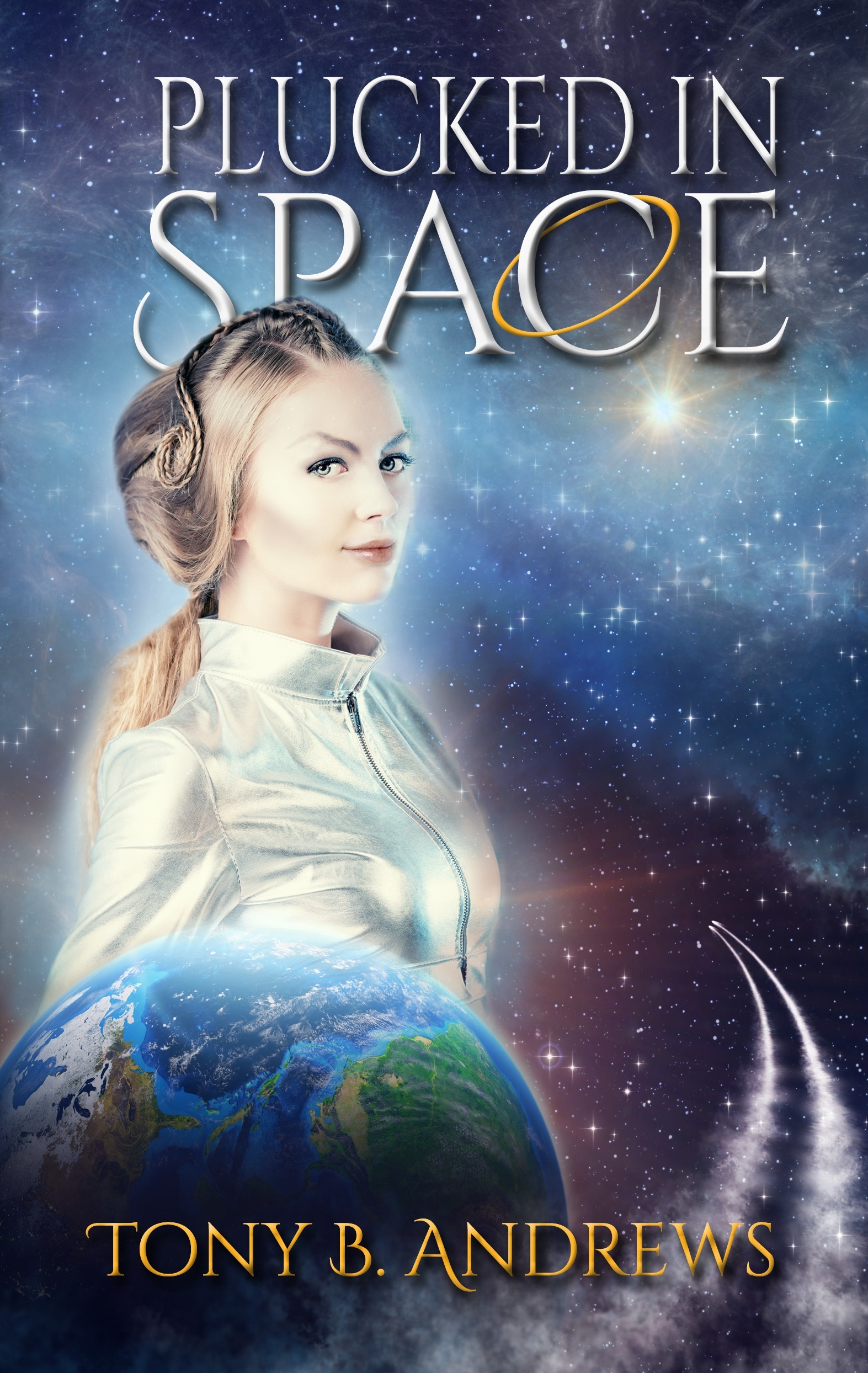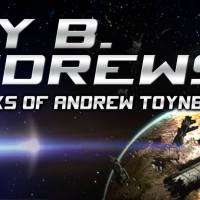Characters who can write their own stories
This is a debate that will probably rage forever.
I have encountered the discussion / argument a few times and sadly, I am forced to agree with both sides of the arguement – never a happy position.
One writer commented; ‘Think about how ridiculous that sounds – someone you’ve invented in your own head decides that he is now going to refuse to run into a burning building. You, the writer, decides what he will and will not do.’
My argument (whilst agreeing with the technical explanation above) is that at some point it may feel completely wrong for a character (with a given personality) to be forced to perform an action – unnatural, even, no matter how much the First Draft required it. And if it feels wrong to the writer, it will almost certainly feel wrong to a reader. So the character is showing his…well character…and ‘protesting’ that what the writer is asking him to do is…out of character.
This is an extract from ProcrastinatingWriters on the very same subject;
Jennifer said;
How would you suggest a writer learn more about what their characters want? I often hear writers say their characters “wrote” the story for them. My writing doesn’t unfold like that. I come up with everything–not my characters. I’d be interested to hear how you suggest someone allow their characters to take the lead.
My reply;
My characters often take over scenes and need frequent reining in.
I know many writers don’t believe this can happen (I admit that it does sound a bit daft! But it happens.) but I believe it might stem from having created strong characters (or at least well-established ones) with clear motives.
When I’m in Muse mode, writing dialogue, a character can leave the well-chosen track and head down a different road altogether. By the time my fingers have stopped moving, the new conversation is already underway. I am then faced with a choice; Hit Delete or go with the new coversation and see where the chat leads. If it’s relevant, or new and exciting, I stay with it. If it leads me down a dead-end, I won’t scrap it entirely, but Cut and Paste it into my Recycling area – from where I may retrieve it later. That bit of dialogue might even inspire a new chapter, idea or complete novel.
So allow your characters some freedom within the story and they might just surprise you by doing something unexpected – something you’d never normally have plotted. Whatever they do, it’ll be within character (it has to be for this theory to be valid).
I also found this entry on Fiction Factor;
Have you ever been writing a story only to have a minor character try to take over?
Okay, so they aren’t real and they can’t really do that, but sometimes it seems like they have a mind of their own.
Larry Brooks says;
Your characters will begin to talk to you.
Ah, the mantra of the pantser. Waiting for the completely fictional construct of your imagination to take over the story.
This is like asking your nine year old to drive so you can enjoy the scenery.
If you have to wait until the character figures out what’s required in the story before you do, then your story is already broken.
Because the story isn’t completely and solely about the character. It’s also about the narrative landscape upon which a drama unfolds – conflict and tension – which may not yet be fully realized within the character’s perception.
Like a nine year old who can’t see over the dashboard.
All valid points, Larry.
However, I heard this from Carole Barrowman (Professor of English and Director of Creative Studies in Writing) on Monday 17th Sept 2012. She was on BBC radio with her brother John Barrowman (yes, him!) discussing the latest Dr Who novel they had written.
She said; “It’s surprising the routes that the characters can take your story down.”
Evidence of characters guiding the story? I think so, Larry.
When I write, I have definite plot points that must be fulfilled and a nailed-down ending. Anything that happens in between those points can be guided by the characters I have created. If I originally visualise a character as being introverted and shy, with events being determined by that and then other events mould that character into a determined, angry and vengeful person, I will happily follow this new line, allowing the new, developed persona to shape their own destiny. The result is often a stronger character and higher drama.
The debate will doubtless continue…
Whilst idly browsing my WordPress stats, I noticed that someone had highlighted this very page from Reddit.com.
The post was one of several that referred to something called (and this is a completely new word for me) Tulpae.
The page describes a Tulpa as; …best described as an imaginary friend that has its own thoughts and emotions, and that you can interact with. You could think of them as hallucinations that can think and act on their own.
The contributor opens the discussion with;
Are characters in a novel the Tulpae of the Author?
Very interesting question…
The post then goes on to ask;
By talking and fleshing out something to your own subconscious for so long, you start to get answers from it. The answers align themselves with all these preconceived traits you’ve given them (for the most part). When you talk to your own mind for long enough, it will answer back: this is an accepted fact.
This sounds a lot like an author with a good enough character not deciding what the character will do, but the author knowing what the character would do because the character tells him or her.
I was told by a writing professor of mine that authors should strive for this level of character development, to the point where the character makes its own decisions.
anyone interested in discussing this?
Read more of the discussion here.
I’ve noted some other thoughts on my post ‘Are authors guilty of creating imaginary friends?’ (Link to follow on Dec 19th 2012)
Back onto the subject of characters taking hold of a story, I stumbled across a Ray Bradbury quote on Chichikir’s wordpress page (if I may borrow the great man’s words);
“The bottom line here is that I am not the one in control. I do not try to steer my characters; I let them live their lives and speak their truths as quickly as possible. I listen, and write them down.”
Even the great Ray Bradbury let his characters find their own way?
And so the debate continues…
CG Blake also discusses the phenomenon here.
* * *
Amira K. at Z-Axis says this;
(Outline your stories before you write.)
Okay, I get that it works for some people, maybe, but it sure doesn’t work for me. When I try to outline I end up boxing myself into corners without giving my characters room to live, breathe, and make their own choices. My characters come to life on the page, sometimes almost without my consent, and do things that take me completely by surprise. They do things that I would never do. If I outlined my stories, I would never be able to give my characters the freedom they deserve.
In December 2014, Tina Hammond wrote about herself (and I reproduce her words with her full permission):
No one is more surprised than she is when characters take over the plot and dialog, (re)directing stories in directions she had not (consciously) intended. Although she starts out each novel with a basic outline, she finds that one or two chapters into the novels, not only have the characters shredded her outline into tiny unidentifiable pieces, they use the resulting confetti in a nose-thumbing parade. She is fully convinced the writer is the tool a story uses to tell its tale.













Jul 30, 2015 @ 20:23:58
Excellent post. I allow my characters to lead me. I’ve plotted plenty of scenes only to have the character change it once I begin writing. Does it sound ‘crazy’? Sure, but I think the best artist are.
LikeLiked by 1 person
Mar 30, 2013 @ 13:06:01
Characters can most certainly write their own stories and the best characters do.
LikeLike
Mar 23, 2013 @ 02:39:14
Oh wow! Finally I’ve found someone who knows where I’m coming from! I’ve said it all along that part of the way into my book, the characters take the lead and it’s like I’m watching a movie where all I have to do is follow along and type! It is often annoying when the ‘bad guy’ starts to become likable or even the hero, when all along, I’m screaming at him, “You are supposed to be a villain!” And now I even have a name for it: tulpae! Thank you so much for this very helpful blog!
LikeLike
Mar 23, 2013 @ 10:36:09
As I said on the page, there is a great deal of debate on this matter. I speak from personal experience and believe it to be true, no matter what the ‘realists’ say. It may well be an effect of our own sub-conscious, but the ‘feeling’ remains the same – that well-developed characters will feel ‘out of place’ if you try to stuff them into uncharacteristic roles.
I recently reblogged an article on Amina and Animus – our subconscious writing personality. You may find that to be of interest. 🙂
LikeLike
Mar 23, 2013 @ 13:31:22
Sounds great, would you be opposed if I re-blogged one of your posts to my site?
LikeLike
Mar 23, 2013 @ 17:41:23
Absolutely no objections at all…feel free. If it’s of interest, then re-blog away. 😀
LikeLike
Mar 23, 2013 @ 19:39:42
Thank you so much!!!
LikeLike
Dec 14, 2012 @ 03:12:58
Oh wow you are fast! 😛 I was the person who linked to your article from r/tulpas. It is a fascinating phenomenon, and I recommend everyone to check it out just to see what crazy thing a creative, dedicated human mind can do! ^_^
LikeLike
Dec 14, 2012 @ 09:06:28
Hi
I will check it out – it sounds as if it ties right in with my own philosophies.
I have also mentioned your discussion in my forthcoming post, so you might see a few extra visitors next week!
I trust that’s okay…
Andy
LikeLike
Dec 19, 2012 @ 08:39:29
If it’s of interest to you, my new post ‘Are Authors guilty of creating imaginary friends?’ is now up.
LikeLike
Oct 09, 2012 @ 17:07:50
The first time I experienced a characters arbitrary opinions, I about fainted. In my mind, all along, I had plans and expectations for this character; then, suddenly, she is speaking to me saying, “No, no, Cara, I don’t want to do that.” “But I’M the writer!” I remonstrated, only to ultimately acquiesce to an imaginary figure. Alas, that is the art of it — part of it, anyway.
~ Cara
LikeLike
Oct 09, 2012 @ 21:27:11
I think it allows a story to develop an extra dimension if the characters respond like that. Larry Brooks scoffs at the idea, but then he’s a planner, not a pantser and fixes his story before writing it. I prefer to let it develop as I write it (always with a fixed ending in mind) and if the characters develop as the story alters, they become a bigger part of it, rather than 2D prefabricated cut outs.
LikeLike